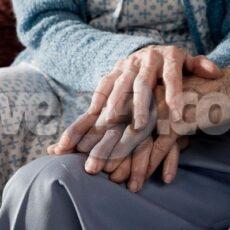
The director also reports that new virus variants have been detected in 20 countries in the Americas and that vaccines procured through COVAX are expected to start arriving in late February

Washington, D.C., February 2, 2021 (PAHO) — PAHO Director Carissa F. Etienne warned that the health, social and economic effects of COVID-19 are disproportionately impacting women and called for heightened attention to the pandemic’s gender disparities.
“To overcome this pandemic, countries must recognize and respond to the gender dynamics of this outbreak,” Etienne said today in a media briefing. “This starts with ensuring that women and girls can access the health services they need – especially during this time of crisis. This includes gender violence hotlines and sexual and reproductive health services, which are essential services.”
While men were more likely to become ill with COVID-19 at the start of the pandemic, those trends are reversing, Etienne said. Now women are equally likely to develop the disease, and they are more vulnerable on many other fronts.
“Women, who make up 70% of the world’s health workers, have faced enormous personal risk to care for COVID patients, even when they had little protective equipment at their disposal,” Etienne said.
So far, more than one million health workers in the Americas have become ill with COVID-19 and 4,000 health workers, most of them women, have died.
Etienne said serious economic and social impacts of COVID-19 fall heavily on women. “Many women have been forced to leave their jobs to care for their families during this pandemic, impacting both their income and their well-being. And the ongoing stay-at-home measures, coupled with the added economic strains, are increasing the risks of domestic violence. For too many women, home is not a safe space.”
Etienne reported that 36 of the countries and territories participating in COVAX, the global mechanism for equitable distribution of COVID-19 vaccines, were notified that more than 35 million doses of the AstraZeneca vaccine are expected to start arriving in late February. Over the weekend, the countries received letters from COVAX detailing the doses that they had been allocated.
“As limited COVID-19 vaccines arrive across our region, countries must prioritize these early doses for our elderly and our health workers – many of whom are women,” Etienne said. “Vaccinating health workers first is both the right and the smart thing to do: It will help us save lives, protect our health systems and recover our economies faster.”
Addressing the new variants of the SARS-CoV-2 virus that causes COVID-19, Etienne reported that three new variants have been detected in 20 countries in the Americas, though their frequency is still limited. The variants have raised concerns about possible heightened transmission.
Etienne also updated the pandemic’s toll on the region. In the past week, more than 1.8 million people in the Americas became sick with COVID-19 and more than 47,000 died. In North America, COVID-19 infections are decreasing in the U.S. and Canada while in Mexico, cases and deaths continue to increase.
In Central America, Guatemala and Honduras are continuing to report a rise in COVID-19 infections. Across the Caribbean, most nations are seeing a reprieve in infections, although larger islands such as the Dominican Republic, Haiti, Puerto Rico and Cuba continue to drive new infections. Nearly every country in South America has reported a rise in COVID-19 infections over the last week.
“Today we’re seeing that cities, provinces, and countries that had previously managed to control COVID-19 outbreaks are seeing a sometimes-devastating resurgence in cases in our region and beyond,” Etienne said. “This should serve as a lesson that keeping the virus at bay is not a one-time effort, but a constant commitment while transmission is still active.”












